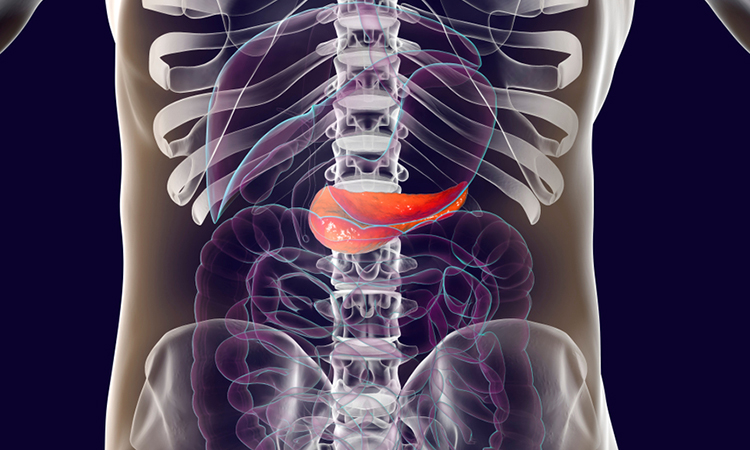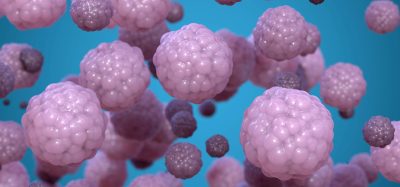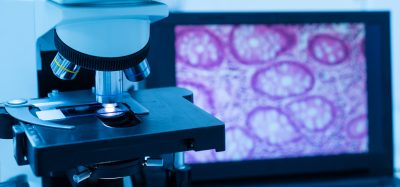Targeted drug found to combat certain pancreatic tumours
Posted: 15 June 2021 | Victoria Rees (Drug Target Review) | No comments yet
Researchers have found that the CDK inhibitor AT7519 could be used to treat pancreatic cancer patients whose tumours are addicted to mutant KRAS.


A new pre-clinical study has identified a novel drug that effectively thwarts pancreatic tumours that are addicted to the cancer-causing mutant KRAS gene. The research was led by Dr Said Sebti in his role at the Moffitt Cancer Center, US.
“We discovered a link between hyperactivation of the CDK protein and mutant KRAS addiction and we exploited this link pre-clinically to counter mutant KRAS-driven pancreatic cancer, warranting clinical investigation in patients afflicted with this deadly disease,” said Sebti, who is professor of pharmacology and toxicology at the Virginia Commonwealth University (VCU) School of Medicine. “Our findings are highly significant as they revealed a new avenue to combat an aggressive form of pancreatic cancer with very poor prognosis due mainly to its resistance to conventional therapies.”
According to the researchers from the study, KRAS is mutated in 90 percent of pancreatic cancers. Previous research has demonstrated that some tumours that harbour mutant KRAS are actually addicted to the mutant gene, meaning they cannot survive or grow without it. The team set out to discover if there is a drug that can specifically kill tumours that are addicted to mutant KRAS.
First, they mapped out the blueprint of pancreatic cancer cells through global phosphoproteomics, which gave them a snapshot of how the addicted and non-addicted tumours differ at the phosphoprotein level. They found two proteins – CDK1 and CDK2 – which were indicative of which cells were addicted to mutant KRAS.
Additionally, they analysed a comprehensive database that contains genome-wide CRISPR gRNA screening datasets. They found that CDK1 and CDK2 as well as CDK7 and CDK9 proteins were associated with mutant KRAS-addicted tumours.
Lastly, they evaluated the ability of a library of 294 US Food and Drug Administration (FDA) drugs to selectively kill mutant KRAS-addicted cancer cells over non-KRAS-addicted cancer cells in the lab and determined the most effective drug in pre-clinical experiments was AT7519, an inhibitor of CDK1, CDK2, CDK7 and CDK9.
“Using three entirely different approaches, the same conclusion presented itself clearly to us: pancreatic cancer patients whose tumours are addicted to mutant KRAS could benefit greatly from treatment with the CDK inhibitor AT7519,” Sebti said.
The team found that AT7519 suppressed the growth of xenograft cells from five mutant KRAS pancreatic cancer patients who relapsed on chemotherapy and/or radiation therapies.
AT7519 has previously been tested unsuccessfully in a number of clinical trials, but none of the trials targeted pancreatic cancer.
“If our findings are correct and translate in humans, then we should be able to see a positive response in pancreatic cancer patients whose tumours are addicted to mutant KRAS,” Sebti said.
The study authors believe that, in addition to pancreatic cancer, these findings may also have clinical implications for colorectal and non-small cell lung cancer patients where mutations in KRAS are prevalent.
The study was published in Clinical Cancer Research.
Related topics
Drug Development, Drug Repurposing, In Vitro, Molecular Targets, Oncology, Target Validation
Related conditions
Cancer, Pancreatic cancer
Related organisations
Moffitt Cancer Center, Virginia Commonwealth University (VCU)
Related people
Dr Said Sebti








